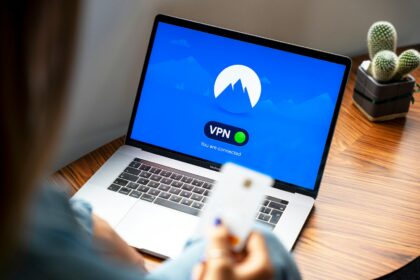Every aspect of modern life depends on computers, whether we are studying, gaming, or video calling friends. Because of this, keeping those systems secure is no longer optional. At the same time, the tactics used by cybercriminals—and the sheer number of them—are advancing at an alarming rate. Hackers seek login credentials, bank details, confidential research, and anything else that can be sold or held for ransom. Defending against those threats has made cybersecurity one of the fastest-growing, most urgent fields in technology. Many high school students are drawn to the challenge, eager to learn the skills that keep millions of online users safe. Fortunately, a wide range of completely Free Cybersecurity Summer Programs for High Schoolers will be open in 2025. These camps and workshops offer hands-on training in coding, network defense, threat analysis, and ethical hacking, allowing participants to test career paths without spending a dime.
These summer programs go well beyond traditional classroom lectures. Participants dive into hands-on activities that mimic everyday challenges in the field. You solve real-life scenarios; the thrill of cracking a mystery alongside a team quickly replaces any pre-event nerves. While the task at hand keeps you focused, informal breaks reveal an unexpected bonus—friends who care as deeply about tech and security as you do. Industry experts drop the jargon. This article maps out the finest tuition-free opportunities and pinpoints the skills each one hones. Slip on your favorite headset and fresh confidence, because the world of cybersecurity is open for exploration.
Why These Programs Matter for High Schoolers
Remarkably, a single summer can tilt your academic trajectory. These programs offer huge benefits. They are more than just summer fun. They can shape your future. They give you a head start in a growing field. Here are some key reasons why these Free Cybersecurity Summer Programs for High Schoolers are so important.
Gain Real-World Skills
School gives you a solid foundation, but some lessons stick only when you roll up your sleeves. Cybersecurity is one of those fields where practice speaks louder than theory. Through our program, you will configure firewalls, probe for software vulnerabilities, and draft incident-recovery plans as if a live breach were underway. These exercises mirror the daily tasks of industry analysts, turning abstract concepts into routines your future employer will expect. Working directly with tools and scenarios that professionals face builds technical acumen and demystifies otherwise daunting material, leaving you more confident and competent.
Skill Development: On the technical side, you will write basic code, tinker with encryption keys, and sift through forensic images searching for overlooked packet headers. Each mini-project hones a high-demand competency and models the improvisational mindset employers value. Equally important, the collaborative lab setup pushes you to listen, negotiate, and explain findings in plain language—soft skills that prove portable across career options. By the program’s end, you’ll carry a balanced toolkit: deep enough for entry-level positions, wide enough to adapt as the landscape evolves.
Career Exploration: The field of cybersecurity includes a wide range of roles, and it is normal to feel uncertain about which pathway matches your interests and strengths. Foundation courses let you experiment with distinct specializations—you could spend time in network security, take a turn at ethical hacking, or focus on data privacy practices. This hands-on testing not only reveals what you find enjoyable, but also highlights areas where you naturally excel. Those insights can then influence the college major you declare, and later guide the entry-level position you accept after graduation.
Networking Opportunities: Throughout the program, you will interact with a variety of people, beginning with the instructors who are often university professors or seasoned industry professionals. You will also meet classmates—enthusiastic high-school peers who care about online safety as much as you do. Each of these connections has future potential: an instructor may choose to mentor you, a peer could recommend an internship, or an alumni contact might pass along a job opening down the road. Cybersecurity in particular values relationships, because threats evolve quickly and information is safest when shared. Fortunately, the community is supportive, willing to exchange tips, experiences, and opportunities with newcomers eager to learn.
Make Your College Applications Shine: Admissions officers appreciate applicants who proactively pursue their interests. Enrolling in a focused summer workshop signals dedication, initiative, and seriousness about a subject. Such experience not only distinguishes your file but also suggests readiness for rigorous coursework. It provides rich anecdotes for essays, allowing you to reflect on challenges faced and lessons gained.
— Dr. Anya Sharma, Cybersecurity Educator
What You Will Learn in These Programs
While curricula differ among offerings, most share core themes that build a basic cybersecurity toolkit. Below is a broad outline of material typical to introductory summer experiences.
| Topic Area | What You Learn |
|---|---|
| Introduction to Cybersecurity | Basic concepts like threats, vulnerabilities, and risks. Why cybersecurity is important for everyone. |
| Network Security Basics | How computer networks work. Common network attacks. How to secure Wi-Fi and home networks. |
| Cryptography | The basics of secret codes and encryption. How messages are kept private and secure. |
| Digital Forensics | How analysts gather clues from compromised computers and restore deleted data. |
| Ethical Hacking / Penetration Testing | Training that encourages students to think like an attacker while locating security gaps legally. |
| Programming for Security | Introductory coding, usually in Python. Shows how even simple scripts automate tasks and strengthen defenses. |
| Cyber Law and Ethics | Overview of laws governing online conduct and why a strong ethical compass matters in every security role. |
| Career Paths in Cybersecurity | Summary of common positions, their daily responsibilities, and the skills needed for each entry point. |
Many programs include lighter activities. Students might join capture-the-flag contests, racing to solve technical puzzles and earn points. There are often guest speakers already in the field who share tales about real incidents and lessons learned. These elements turn abstract theories into practical stories, making the whole experience more lively and easier to remember.
20 Free Cybersecurity Summer Programs for High Schoolers in 2025
Finding the right program can be exciting. The following collection of excellent Free Cybersecurity Summer Programs for High Schoolers is worth exploring in 2025. Always visit each group’s official page for the latest dates and application details; requirements and deadlines shift from year to year.
1. GenCyber Program
Host: Dozens of colleges and universities across the United States, with funding from the National Security Agency and the National Science Foundation.
Focus: Offers a wide, beginner-friendly look at cybersecurity while sparking long-term interest in the field. Most sessions target high school students.
Key Learning: Participants explore cyber ethics, safe online behavior, basic coding, network defense, and introductory cryptography through guided labs and team challenges.
Application: Each host sets its own process, usually an online form, personal statement, and sometimes a teacher’s recommendation; spots fill quickly and competition can be stiff.
2. CyberPatriot National Cyber Education Program
Host: The Air Force Association.
Focus: Operates year-round and centers on a national competition, with summer camps that are often free or low-cost to help students develop practical skills.
Key Learning: Students learn to secure Windows and Linux systems, harden networks, conduct digital forensics, and collaborate under time pressure, boosting technical and teamwork abilities.
Application: Schools or youth clubs can register a team; summer camps have a separate process that usually includes brief online forms and a short essay.
3. Girls Who Code Summer Immersion Program
Host: Girls Who Code.
Focus: Aims to build confidence in young women who want careers in tech; while the curriculum does not follow security alone, most cohorts spend time on safe coding practices.
Key Learning: Foundational coding skills (Python, HTML, CSS, JavaScript). Project-based learning. Exposure to various tech fields, including cybersecurity concepts like data privacy and online safety.
Application: Online application, short answer questions, and a recommendation. Open to female-identifying high school students.
4. NSA High School Cybersecurity Intern Program
Host: National Security Agency (NSA).
Focus: A highly selective internship for high school students interested in national security and cybersecurity.
Key Learning: Real-world experience working alongside NSA professionals. Exposure to advanced cybersecurity operations, intelligence analysis, and secure system development. Specific tasks vary.
Application: Very competitive. Requires an online application, academic transcripts, essays, and potentially interviews. U.S. citizenship is required.
5. CyberCamp (Various Locations)
Host: Various universities, often in partnership with local government or industry.
Focus: Hands-on cybersecurity training for beginners to intermediate students. Often regional, serving local communities.
Key Learning: Topics like network defense, cryptography, basic programming, and cyber ethics. Many include capture-the-flag exercises. Specific content depends on the host.
Application: Online application. Some may require a short essay or statement of interest. Check local university websites.
6. CyberStart America
Host: National Cyber Scholarship Foundation (NCSF) and SANS Institute.
Focus: An online program that teaches cybersecurity skills through challenges. Top performers can earn scholarships and access to advanced training.
Key Learning: Web vulnerabilities, cryptography, programming, digital forensics, and Linux command line skills. It’s a self-paced learning platform.
Application: Free to participate for all high school students. Register online and start playing challenges. No prior experience needed.
7. Code for Fun Cybersecurity Camp
Host: Code for Fun (non-profit).
Focus: Introduces middle and high school students to cybersecurity concepts in a fun, engaging way. Often offers free or scholarship-based camps.
Key Learning: Internet safety, password security, phishing awareness, basic encryption, and privacy settings. Hands-on activities and games.
Application: Check their website for specific camp offerings and scholarship opportunities. Online registration is typical.
8. CyberCorps®: Scholarship for Service (SFS) Summer Camps
Host: Various universities with NSF funding.
Focus: While SFS is primarily for college students, some universities hosting SFS programs also run free summer camps for high schoolers. These camps aim to build the pipeline for future cybersecurity professionals.
Key Learning: Deep dives into specific cybersecurity topics, often including secure coding, network defense, or penetration testing. Content is often more advanced.
Application: Look for university websites that are part of the SFS program. Applications are competitive and typically require essays and recommendations.
9. NSA Day of Cyber
Host: National Security Agency (NSA).
Focus: An interactive online experience for high school students. It simulates a day in the life of a cybersecurity professional. It is not a traditional summer program but a valuable free resource.
Key Learning: Problem-solving skills, critical thinking, and exposure to various cybersecurity roles. It helps students see if a cybersecurity career fits them.
Application: Available online year-round. No application process; just access the platform.
10. Cyber Aces Online
Host: U.S. Cyber Challenge (USCC).
Focus: Provides free online courses for foundational cybersecurity knowledge. It is self-paced and accessible to high schoolers.
Key Learning: Operating systems (Linux, Windows), networking, and programming (Python). These are core skills for any cybersecurity path.
Application: Free online registration. You can start learning anytime.
11. NICE Cybersecurity Workforce Framework (Online Resources)
Host: National Initiative for Cybersecurity Education (NICE), a program of NIST.
Focus: Offers a framework for cybersecurity education and training. While not a summer program itself, it points to many free online courses and resources suitable for high schoolers.
Key Learning: Understanding different cybersecurity roles and the skills needed for each. Access to various learning modules from different providers.
Application: Explore their website for links to free educational content and pathways.
12. CybHER Summer Camps (South Dakota)
Host: Dakota State University.
Focus: Programs designed exclusively for female students in grades 6-12 who want to learn about security, often at no cost and with overnight stay.
Key Learning: Girls practice coding, digital forensics, network defense, and ethical hacking while forming a lasting support network.
Application: Complete the online form early; spots are limited and awards are competitive. Check the university page for deadlines and detailed dates.
13. Cyber Aces State Competitions
Host: U.S. Cyber Challenge in cooperation with state agencies.
Focus: Regional contests aimed at spotting and nurturing local talent, bundled with free study guides.
Key Learning: Students demonstrate skills through real-world scenarios on Linux, Windows, and routing internals.
Application: Sign up through the dedicated portal for your region; entry is cost-free.
14. Capture The Flag (CTF) Events (Online)
Host: Countless clubs, universities, and Fortune 500 security teams.
Focus: Web-based challenges let learners crack puzzles solo or in teams, frequently at no charge.
Key Learning: Tasks cover cryptography, web abuse, reverse code, and forensic clues, motivating hands-on skill growth.
Application: Use platforms like CTFtime.org to locate accessible Capture the Flag competitions. Sign up for any events marked as beginner-friendly or specifically for high school students. Entering these challenges usually costs nothing.
15. Local University Outreach Programs
Host: Computer science or engineering departments at nearby colleges and universities.
Focus: Most institutions run free summer workshops aimed at high schoolers to showcase campus life and academic paths.
Key Learning: Content varies by program and may cover basic coding, robotics, or introductory cybersecurity. Activities typically include faculty talks and guided tours.
Application: Visit local university websites, searching for K-12 outreach, summer initiatives, or similar phrases under computer science or engineering.
16. Cyber Aces Online (Advanced Modules)
Host: U.S. Cyber Challenge (USCC).
Focus: These lessons expand the beginner track, diving deeper into specific areas of cybersecurity.
Key Learning: Students study advanced network security, web app testing, or malware analysis, gaining skills for more complex problems.
Application: Access the advanced modules for free after finishing the basics; all content is self-paced.
17. CyberCamp USA (Various Locations)
Host: Schools, community groups, and industry partners organize these short, in-person learning events.
Focus: Camps give newcomers a hands-on look at key cybersecurity concepts such as risk assessment, system hardening, and incident response.
Key Learning: Participants explore Internet safety, basic coding, introductory cyber defence, and thoughtful digital citizenship, usually through lively games and hands-on simulations.
Application: To find a local camp, search for CyberCamp USA alongside your state or city. Each site posts its own registration deadlines and requirements.
18. CybHER Cyber Leaders Program (South Dakota)
Host: Dakota State University.
Focus: This advanced track targets high school girls already curious about cybersecurity and works to sharpen their technical chops while growing essential leadership skills.
Key Learning: Attendees gain deeper tools and concepts, learn project management, and practise stepping into leadership roles, often guided by generous mentors.
Application: Young women should already have some experience or have come through earlier CybHER camps before applying, and selectees are chosen through a competitive review process.
19. NSA Codebreaker Challenge (Online)
Host: National Security Agency.
Focus: This yearly online puzzle fest welcomes college students, but capable high schoolers may also dive in, tackling tough, real-world cybersecurity problems.
Key Learning: Contestants wrestle with cryptography, reverse engineering, and exploitation tricks, so the experience earns kudos every time, even if the questions feel punishing.
Application: Participation is free and requires no formal sign-up; just head to the NSA website when the challenge opens each autumn and be ready to think fast.
20. SANS Cyber Immersion Academy (Various Locations)
Host: SANS Institute.
Focus: Because most SANS training carries a steep price tag, the outfit occasionally rolls out free immersion events or extends scholarships to promising high school students, and those rare chances carry serious weight on a resume.
Key Learning: Participants receive intensive training recognized industry-wide in specific cybersecurity areas, instructed by leading field experts. Successful completion often results in coveted certification credentials.
Application: Visiting the SANS website reveals current scholarship options plus occasionally offered no-cost classes. Because resources are limited, each round attracts many applicants and reviewers look for demonstrated motivation and proven aptitude.
How to Choose the Right Program for You
Now that numerous great Free Cybersecurity Summer Programs for High Schoolers are available, selecting the best match can feel overwhelming. Consider these straightforward steps to guide your choice.
- Assess Your Current Skills: Honest appraisal is essential. If you have never typed a line of code, seek an entry-level class. If you have built a personal website or scripted in Python, there are offerings that will stretch you yet remain within reach.
- Clarify Your Interests: Cybersecurity is broad, from ethical hacking and malware reverse engineering to digital forensics and secure-system design. Narrowing your focus will help locate a program centered on the work you find exciting.
- Review the Format: Some experiences occur live via video, others offer self-paced recordings, and a few still meet face-to-face. Online flexibility suits busy summers, while in-person sections facilitate bonding with peers and mentors.
- Examine the Duration: Programs run anywhere from four days to six weeks. Before you apply, cross-check start dates against camps, jobs, vacations, and family plans to avoid scheduling conflicts.
- Read Reviews and Testimonials: Whenever you can, look for comments from students who have already completed the program. Their insights reveal the quality of the instruction and the overall experience.
- Application Requirements: Many summer programs fill quickly. To stand out, follow every requirement—express your ideas in essays, ask teachers for strong references, and proofread carefully. Starting the process early gives you breathing room.
Consider applying to several opportunities. A broader list boosts your odds and lets you weigh offers later. Even if your top pick isn’t available, countless other programs can still launch your journey.
Conclusion: Your Gateway to Cybersecurity
The demand for trained cybersecurity specialists grows daily. Attacks evolve, leaving room for brighter minds to protect networks. These Free Cybersecurity Summer Programs for High Schoolers place you in that vital role. You learn hands-on, refine useful skills, explore careers, and build friendships—yet spend nothing.
Take a moment to explore these unique summer programs before the spots fill up. Many students discover that a single workshop or course reveals interests they had never considered. That quiet curiosity can grow into a dedicated passion when nurtured in the right environment. Start by reviewing the listed opportunities, noting the ones that spark your enthusiasm. Gather the materials you need, whether it is transcripts, a brief essay, or a recommendation. These small tasks will set you up to submit a clean application weeks ahead of the deadline. If you are accepted, you will spend your summer learning to safeguard networks, defend systems, and analyze threats.
























